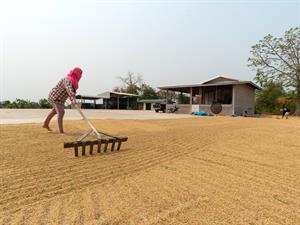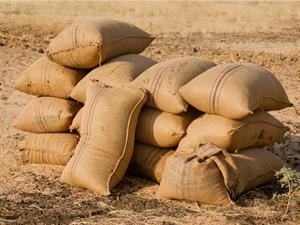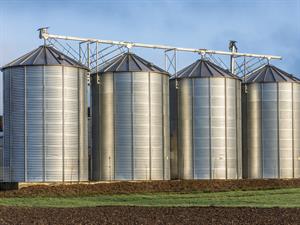
PUMPA - SMART LEARNING
எங்கள் ஆசிரியர்களுடன் 1-ஆன்-1 ஆலோசனை நேரத்தைப் பெறுங்கள். டாப்பர் ஆவதற்கு நாங்கள் பயிற்சி அளிப்போம்
Book Free DemoStorage of the harvested grains is an important task and an essential aspect of post-harvest technology. Storage is important as the crops are produced seasonally but are consumed throughout the year.
Harvested grains may need to be stored for prolonged periods of time in some cases. Thus, the supply of the produce has to be maintained by proper storage. In such cases, we must protect the food grains from moisture, insects, rats, and microorganisms.
Drying:
Freshly harvested grains (seeds) have more moisture. So they are stored after drying in the sunlight. If not, they may get spoilt or attacked by microorganisms like fungi, making them unfit for use or germination. Drying prevents the attack by insect pests, bacteria, and fungi.

Drying
Packing for storage:
Before packing the grains to store, they need a treatment of preservation. Dried neem leaves are used as a preservative for storing food grains at home. Chemical vapours are sprayed to reduce the insects and pests when storing a large quantity of grains in godowns. This process is called fumigation.
Fumigation protects the produce from pests and microorganisms. After this, farmers use jute bags or metallic bins to store grains.
Foodgrains are collected in gunny bags and are stored in godowns. Silos and granaries are used for to store grains on a large scale to protect them from pests like rats and insects.

Rice grains stored in gunny bags

Silos
The stored grains are inspected often from time to time to ensure that they are free from pests and other crop diseases. In our country, grains are stored in government-owned godowns on a large scale. The different categories of agricultural produce needing storage are food grains, oilseeds, seeds, and fodder.
Important!
Food Corporation of India (\(FCI\)) was started and set up on \(14th\) January \(1965\) in Chennai to distribute food grains throughout the country for the Public Distribution System (\(PDS\)). The \(FCI\) maintains satisfactory operational and buffer stocks of the food grains to ensure National Food Security. Its capital is in New Delhi now.